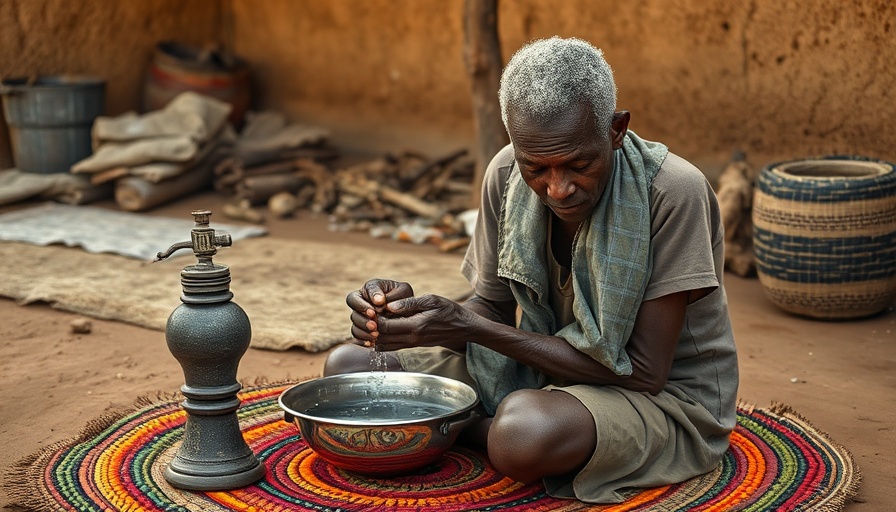
The Emerging Climate Crisis: Four Key Issues Affecting Africa and Beyond
As climate change continues to exert profound influence on global policies and economies, recent findings from the UN Environment Programme (UNEP) reflect alarming realities that threaten vulnerable communities worldwide. The Frontiers Report 2025 underscores four urgent climate issues that, if left unaddressed, could significantly impact Africa's socio-economic landscape and its interrelations on the world stage.
Melting Glacier Microbes: Unseen Threats Rising
The thawing of glaciers, a direct consequence of rising global temperatures, is releasing ancient microbes previously trapped in ice. These microbes pose potential health risks, as they could resurface in human populations where immunity levels are low. For business leaders and policymakers in Africa, understanding the implications of such microbial threats can inform healthcare systems and preventive measures, emphasizing the need for robust public health policies.
Legacy Pollution: A Toxic Inheritance
Pollution from decades past continues to cast a long shadow, with floods exacerbating the release of toxic materials into the environment. Undoubtedly, this situation represents a stark reality for many African nations, impacting food security and public health. Addressing legacy pollution is crucial for sustainable economic growth, financial markets stability, and enhancing governance frameworks that prioritize health and safety.
Undamming Rivers: Ecological and Economic Implications
As globalization drives demand for resources, Africa's rivers face pressure from development projects aimed at leveraging natural assets. The undamming of these rivers can restore ecosystems, but redistributive challenges arise which affect water security for communities relying on this resource. Therefore, it becomes essential to consider the balance between conservation efforts and growing economic needs, potentially informing future trade policies across the continent.
Climate Vulnerabilities for the Aging Population
With an increasingly elderly demographic, climate risks present unique challenges in Africa, especially in rural areas where healthcare access is limited. Vulnerabilities may deepen as extreme weather events become more frequent, impacting health and personal safety. It is imperative for African leaders to recognize the link between climate change, aging, and socio-economic stability, utilizing this information to shape effective policies that protect their most vulnerable citizens.
Preparing for the Future: What Actions Can Be Taken?
Given these pressing climate issues, immediate action is vital. Stakeholders across various sectors must prioritize sustainable practices, harness technological innovations, and collaborate on international policies to combat these threats. Effectively addressing these challenges not only serves the interests of African nations but also solidifies their standing in global discussions around climate action and economic resilience.
In conclusion, the comprehensive approach to climate change highlighted in the UNEP report provides a critical framework for policymakers and business leaders alike to foster resilience against these emerging threats. Understanding the intersections of health, environment, and governance in the context of these issues can empower Africa to navigate the complexities of a changing climate. As an engaged participant in these discussions, now is the time to build a sustainable future.
 Add Row
Add Row  Add
Add 


Write A Comment